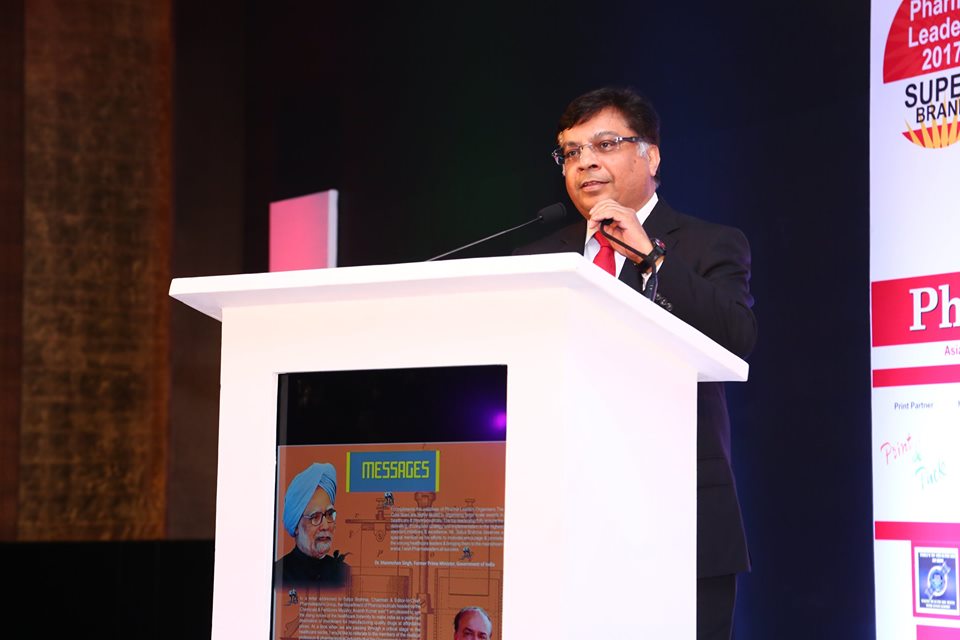Hindustan Syringes & Medical Devices is one of the largest suppliers to UNICEF for Auto Disable syringes for immunisation and is the first company in India to manufacture auto disable syringes for curative segment.
Rajiv Nath is Managing Director of Hindustan Syringes & Medical Devices Ltd. which is having a turnover of over 600 Crores & Trustee – Safe Point India – a CSR Initiative of HMD (Hindustan Syringes & Medical Devices Ltd.). He is the President of All India Syringes & Needles Mfg. Association. (AISNMA) and the Founder and Forum Coordinator – Association of Indian Medical Device Industry (AIMED) with over 350 Members nationwide whereby Medical Device Manufacturers all types of technologies have been attracted nationwide on one Platform. He has widely traveled more than 52 countries and has attended various meetings of WHO/ UNICEF/ ICASA/SIGN. As the Forum Coordinator of AIMED, He has taken many initiatives to establish a Collaborative Framework with various departments of the govt. and media to bring to their attention the issues troubling the industry and attract investments into India in his quest to make India as the preferred manufacturing destination and the leading supplier of medical device worldwide.
India’s preeminence as a manufacturing hub for fast-selling medical consumables such as syringes and cannulas is not confined to Asia, but also remains unabated worldwide. In a move to cut down cost of Indian syringe and cannula brands by more than 50 percent, a group of domestic manufacturers have decided on voluntary reduction of MRPs apropos of these healthcare consumables. This move rides the coattails of growing debate and speculation over handing the control of medical devices cost to the government. Additionally, the All India Drug Action Network (AIDAN) has demanded the government for immediate imposition of cost control on syringes & needles, along with medical devices notified as commonly used devices. China continues to remain the second-largest syringes & cannulas market in APEJ.
Disposable syringes continue to gain ground in light of myriad factors, ranging from fast evolution of biologics through aggressive research and development activities to their efficacy in easing management of larger patient pool, meanwhile cutting down possibilities of overfills. It is highly likely that future prospects for disposable syringes manufacturers will be optimistic, with the proliferation in drug development efforts apropos of biologics. Demand for reusable syringes, despite sluggish, continues to remain sustained by demand in animal-based research studies. Volume sales of reusable syringes will record less than 2X slower growth, compared to disposable syringes sales through 2028.
The market for cannulas will continue on its sluggishness, with increase in volume sales estimated at just 4 million units in 2018 over 2017, as compared to 572 million units of syringes. While volume share of worldwide cannula sales remain concentrated in variants featuring wings and port, nasal cannula are likely to record a relatively faster growth through 2028. Automatic activation of safety mechanism during the needle withdrawal, coupled with prevention of accidental needle prick injuries to healthcare professionals, is a key attribute of cannulas with wings and port that have sustained their demand in hospitals and clinics.
Nasal cannulas are witnessing higher demand owing to increasing global burden of COPD, with over 3 million deaths estimated worldwide by the WHO in 2015. Additionally, the breakthrough patient-centric solution, which ensures continuous flow of oxygen equivalent to dual-pronged cannula, has led distributors seeking competitive differentiation and innovative products to incorporate the product in their portfolio.
Hospitals continue to hold leading volume shares in the syringes and cannulas market, being the first point for treatment in most countries and affordable access to first-aid medical care. However, syringes & cannulas sales in clinics are likely to pick faster pace through 2028, with investment initiatives focused toward primary healthcare likely to result in growing number of clinics worldwide. Recent approval of US$ 105 Million equivalent non-reimbursable grants for Government-based primary healthcare strengthening programs is a key aspect underpinning growth of clinics worldwide, which in turn will significantly affect future demand for medical devices such as syringes & cannulas in clinics.



